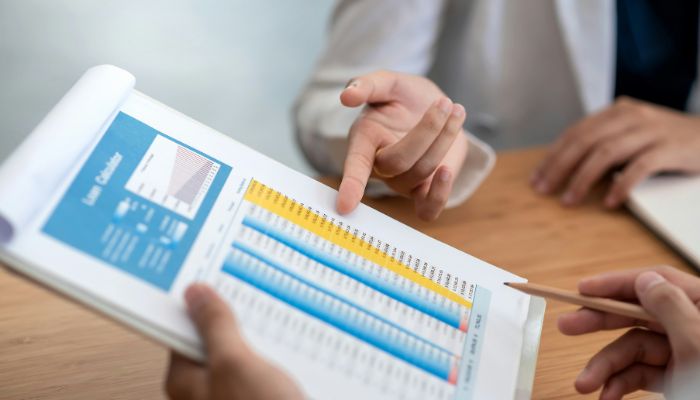
The Public Records Number (PRN) is a unique identifier assigned to public documents to ensure efficient access, reference, and management. It is used by government entities, court systems, and various other sectors such as healthcare and finance to promote reliability and transparency. The format of a PRN varies by jurisdiction and may include letters, numbers, and symbols, aiding in accurate data verification and cross-referencing.
This standardized approach streamlines record-keeping and supports compliance with regulations while minimizing errors. Understanding how PRNs enhance accountability and efficiency across different industries can provide further insights into their significance.
Understanding Public Records Number
A Public Records Number is crucial for navigating the vast landscape of public documents. Authorities assign this unique identifier to specific public records, allowing efficient access, referencing, and management of the documents. It acts as a systematic tool that simplifies the retrieval process, ensuring both accuracy and speed in locating information.
Public Records Numbers are usually assigned by the agency managing the records, such as government offices or courts. These numbers organize large amounts of data and create a consistent framework for categorization. Moreover, each number is unique, allowing users to easily identify specific documents and avoid confusion with similar records. For those looking to streamline searches, utilizing an access public records database can further simplify retrieving these essential documents.
The format of a Public Records Number may vary depending on the jurisdiction and the type of document it is associated with. It often includes a combination of letters, numbers, and sometimes symbols, structured to convey specific information about the document’s category, origin, or sequential order within a registry.
Understanding these components is essential for professionals and individuals who regularly interact with public records, ensuring they can effectively access and utilize the information contained within those documents.
Importance of Public Records Number

The role of a Public Records Number goes beyond identification. It is crucial for efficient and reliable management of public documents. By offering a unique identifier, it ensures records are easy to access and trace. Moreover, this system helps maintain the integrity of public records by enabling quick retrieval and minimizing the risk of loss. As a result, it enhances transparency and accountability, key principles in public administration.
Moreover, the Public Records Number is essential in creating a standardized approach to record-keeping. This standardization facilitates seamless communication and data exchange between various governmental departments and agencies. It minimizes the potential for errors and discrepancies, thereby fostering trust in public records systems. This number also simplifies the auditing process, as records can be tracked and verified with ease.
Moreover, a Public Records Number simplifies tasks for government employees and the public. It speeds up information requests, giving citizens quick access to needed data. This efficiency saves time, reduces resources, and improves trust between the government and citizens.
Utilization in Various Sectors
Across various sectors, the Public Records Number proves to be an invaluable asset in streamlining operations and enhancing efficiency.
In the healthcare industry, it assists in maintaining patient records with precision, ensuring that medical histories are easily accessible to authorized personnel. This facilitates quicker decision-making and improved patient care.
Financial institutions leverage this number to efficiently manage customer data, enabling seamless transactions and compliance with regulatory requirements.
In the legal field, the Public Records Number is crucial for tracking case files and court documents, thereby improving the management of legal proceedings and reducing the scope for errors.
Government agencies utilize it to organize and access vast amounts of public data, ensuring that services are delivered more effectively to citizens. This centralization of records aids in reducing administrative overheads and enhances service delivery.
The education sector benefits from the Public Records Number by utilizing it to manage student records, from enrollment to alumni tracking, ensuring a comprehensive overview of educational journeys.
Similarly, real estate companies employ it to maintain property records, thereby facilitating smoother transactions and ensuring the accuracy of property histories.
In essence, the Public Records Number is a key element in optimizing operations across diverse fields.
Role in Promoting Transparency

Public Records Numbers serve as a beacon of transparency in various sectors, ensuring that information is accessible and verifiable. These unique identifiers are invaluable in the management and retrieval of public records, facilitating the tracking and confirmation of data across governmental, business, and non-profit entities.
By providing a systematic means of cataloging information, Public Records Numbers enhance the public’s ability to access and scrutinize records, reinforcing trust in the integrity of information shared by institutions.
Furthermore, the role of Public Records Numbers goes beyond mere cataloging; they simplify accessing records by creating a direct link between the requester and the information they need. As a result, this directness reduces barriers that often obscure data, ultimately promoting an open environment where information flows freely. Checking public civil records ensures transparency in legal matters, making case-related information easily accessible to the public.
Furthermore, standardizing how records are referenced reduces errors and discrepancies in record-keeping. Ensuring the public receives accurate and consistent information.
Enhancing Accountability With Public Records
At the heart of accountability lies the effective use of Public Records Numbers, which empower citizens and stakeholders to monitor and evaluate the actions of organizations and government bodies. These unique identifiers serve as crucial tools in ensuring that public entities operate transparently and answerably. By granting access to comprehensive records, they enable systematic reviews of decisions, financial transactions, and policy implementations. This accessibility fosters a culture of accountability, where actions are scrutinized and responsibilities are clearly defined.
Public Records Numbers help track and reference documents efficiently, making it easier to request and access information. Moreover, this organization ensures records are well-maintained and promptly available, reducing delays and confusion. As a result, they offer citizens a reliable way to hold authorities accountable.
Furthermore, these identifiers enhance the integrity of record-keeping practices by minimizing errors and redundancies. Accurate and consistent documentation promotes trust between the public and government entities, reinforcing democratic principles. By safeguarding the accuracy and accessibility of public records, Public Records Numbers play a pivotal role in enhancing accountability, ensuring that entities remain answerable to the public they serve.
Function in Research and Verification

In the realm of research and verification, Public Records Numbers are indispensable tools that streamline the process of information retrieval and validation. These unique identifiers serve as essential links to public records. Ensuring that researchers and professionals can efficiently access the data they need.
By providing a direct reference to specific documents, Public Records Numbers eliminate ambiguity and enhance the accuracy of information gathering.
For researchers, these numbers simplify the task of locating precise records within vast databases. Whether investigating historical property ownership, verifying legal documents, or tracing genealogical information, the use of Public Records Numbers facilitates quick access to the right files. This efficiency is crucial in a field where time and accuracy are paramount.
Moreover, Public Records Numbers play a vital role in verification processes. Legal professionals, for example, rely on these identifiers to confirm the legitimacy of documents or to cross-reference information with ease.
Using Public Records Numbers allows individuals to swiftly verify facts and figures, reducing errors and increasing confidence in the analyzed data.
Conclusion
The public records number is a key tool for ensuring transparency and accountability. Moreover, it simplifies access to information, aiding research and verification. By improving data tracking and management, it helps maintain trust in institutions. Therefore, implementing and managing public records numbers effectively is essential for fostering an informed society.